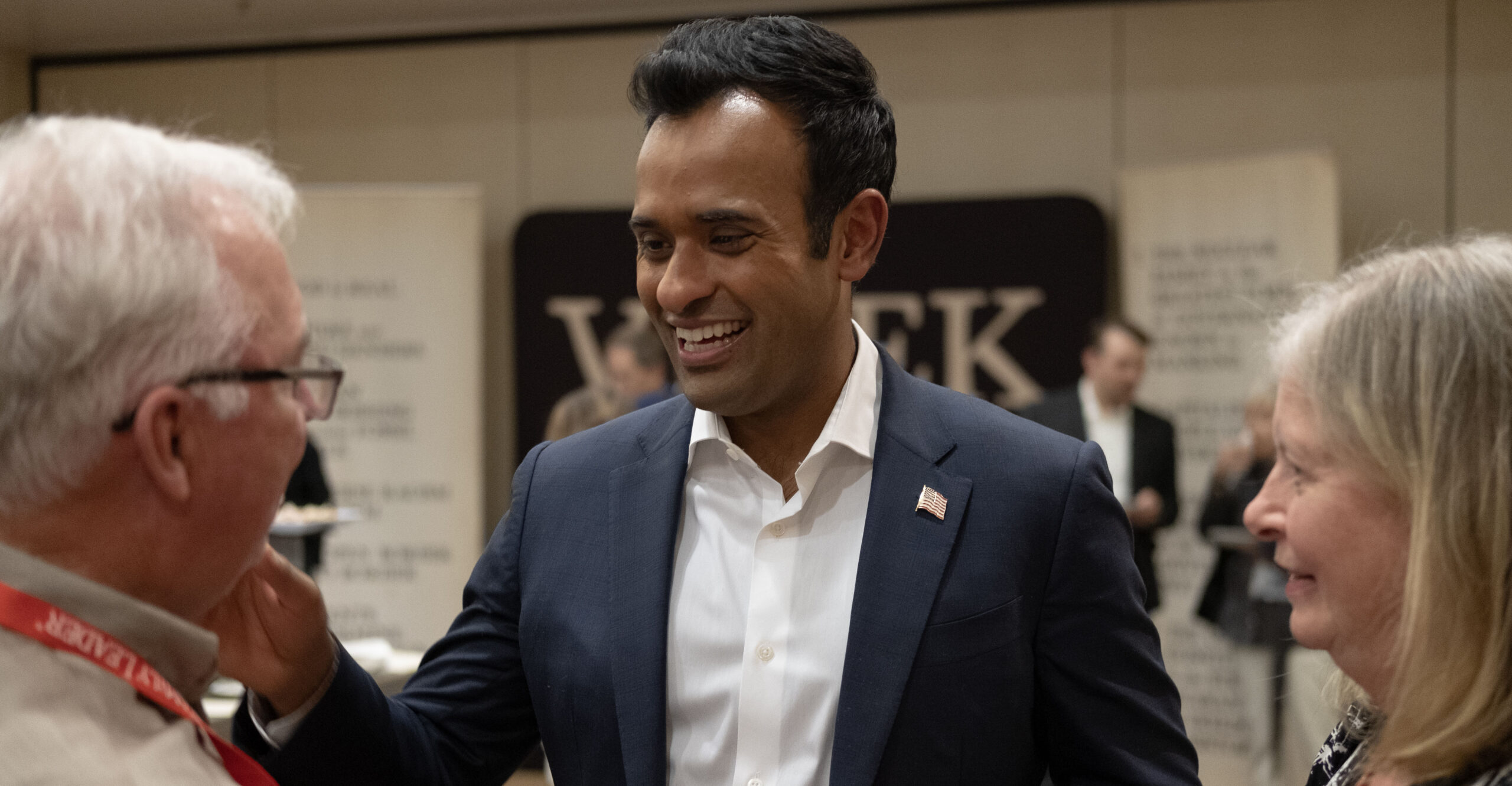
www.tor.com
Read an Excerpt From All the Hidden Paths
There’s more than one way to end an alliance…
We’re thrilled to share an excerpt Foz Meadows’ follow-up to A Strange and Stubborn Endurance‚ All the Hidden Paths—a sultry political and romantic fantasy publishing December 12th with Tor Books.
With the plot against them foiled and the city of Qi-Katai in safe hands‚ newlywed and tentative lovers Velasin and Caethari have just begun to test the waters of their relationship. But the wider political ramifications of their marriage are still playing out across two nations‚ and all too soon‚ they’re summoned north to Tithena’s capital city‚ Qi-Xihan‚ to present themselves to its monarch.
With Caethari newly invested as his grandmother’s heir and Velasin’s old ghosts gnawing at his heels‚ what little peace they’ve managed to find is swiftly put to the test. Cae’s recent losses have left him racked with grief and guilt‚ while Vel struggles with the disconnect between instincts that have kept him safe in secrecy and what an open life requires of him now. Pursued by unknown assailants and with Qi-Xihan’s court factions jockeying for power‚ Vel and Cae must use all the skills at their disposal to not only survive‚ but thrive.
Because there’s more than one way to end an alliance‚ and more than one person who wants to see them fail… and they will resort to murder if needed.
Â
Â
We’d been at Caethari’s holdings in the Avai riverveldt just long enough for me to fall in love with them when the summons came. A courier rode in on a fi ne bay mare and handed the message to Cae in person‚ bowing from the saddle in one breath and departing in the next‚ her job done. A sense of foreboding tickled my neck as my husband broke the elaborate wax seal on the missive and unrolled its fine paper‚ frowning at the contents. I’d been happy enough for long enough—which is to say‚ for nearly three weeks—that I’d grown suspicious of my own felicity‚ and when Cae’s mouth twisted in annoyance‚ some cynical part of me rejoiced in perverse vindication. See? it seemed to say. We knew this couldn’t last.
“We’re wanted in Qi-Xihan‚” said Cae. He swallowed‚ glancing at me. “Her Majesty Asa Ivadi Ruqai desires an audience.”
Whatever crisis I’d been expecting‚ this wasn’t it. I blinked at him. “What?”
“The asa wants to see us‚” Cae repeated. He shot me a look that was equal parts confused and frustrated. “She doesn’t say why; only that we’re to appear at our earliest convenience‚ which is a polite way of saying as soon as is humanly possible‚ and that this is her personal request.”
I grimaced‚ thoughts whirling. “Th ere must be trouble with Ralia over our marriage‚” I said. “Either King Markus objects‚ or one of his factions does‚ and we need to give an accounting of it all.” I faltered. “That‚ or—the other thing.”
Buy it Now
My husband winced and looked away‚ leaving me to silently curse myself. The other thing‚ I’d said‚ as though the deaths of Caethari’s father and sister‚ the former at the latter’s hands‚ was a sordid afterthought. The only reason he wasn’t dressed all in black was in deference to the newness of our marriage: Tithenai custom held that to observe full mourning before a new couple’s second and final marriage-gathering was bad luck. As such‚ Cae wore a dark lin edged with black and had wound black ribbons into his braid‚ but was otherwise dressed normally. My lin‚ too‚ was trimmed with black‚ and as my hair was yet too short for a proper Tithenai braid‚ I wore my matching ribbons bound around my wrists. Cae had tried to say it wasn’t necessary—I’d scarcely known his father‚ while his sister’s last act had been to take me hostage—but I’d ignored him and done it anyway. Honouring his grief seemed the very least I could do‚ under the circumstances.
I placed a hesitant hand on Cae’s shoulder‚ relieved when he leaned into the touch.
“You needn’t talk around it so‚” he said‚ raising his opposite hand to squeeze my fingers‚ this gentleness in contrast to the bitter scrape of his voice. “Call it what it is: Laecia’s treachery.”
“I’ll call it whatever hurts you least.”
“There is no least hurt‚ with a thing like this.” And then‚ with a sigh‚ “I’m sorry‚ Vel. I shouldn’t snap. It’s just… I thought we’d have more time here.”
“Me‚ too‚” I admitted‚ and took a moment to ache at the thought of leaving. When we’d first set out from Qi-Katai‚ I’d been apprehensive‚ worried that whatever rural charms Avai might offer would prove an insufficient sap to my fractious brain and urban predilections. What would it mean for my marriage if I couldn’t find some means of self-occupation that neither endangered the pair of us nor drove Cae to distraction? The prospect of helping administer his holdings here was a potential lifeline‚ and one I was all too afraid would fray apart in my hands.
But the moment we’d ridden down the broad‚ paved drive to the main estate—the same drive in which we presently stood—I’d felt myself bewitched. It was calm in Avai‚ the sort of calm that sinks across your shoulders like a soft‚ cool fur and eases whatever tension you’ve been carrying. The scent of the Eshi River was everywhere—not acrid and foul‚ like so many city rivers come to be‚ marred by human refuse and the leavings of industry‚ but bright and clean. Birdsong cut through the elegant‚ curving branches of trees I’d never seen before‚ while neat fields and orchards in late-autumn hues of brown and russet patchworked the valleys between gentle‚ rolling hills. I’d found nature beautiful before‚ of course—I’m not made of stone—but Avai felt different.
Perhaps it was simply that my life‚ since leaving Farathel‚ had been one overwrought commotion after the next‚ such that the pretty quietude of this patch of Tithena was a balm I hadn’t known I’d needed. Perhaps my tastes were maturing as I aged—and moons‚ but this recent span of weeks had certainly aged me!
Or perhaps I only felt what I did because of Caethari. For all that our marriage and acquaintance both were scarcely a month old‚ I had come to care for him as I’d cared for few others in my life. In the aftermath of his sister’s betrayal‚ he’d confessed his love for me‚ and though I didn’t yet trust that the depth of my feelings matched his own‚ the knowledge that he didn’t expect direct reciprocation—that he was content for me to be as I was‚ at least for now—meant more than I could say. Avai mattered to him: was that why it mattered to me? I rubbed my beribboned wrists together‚ unsettled by the prospect.
“Wait‚” said Cae‚ suddenly. “There’s a second page.”
“A second page?”
“Or‚ not a page—there’s something stuck‚ here—” He held up the letter and flipped it over‚ blunt nails scrabbling ineffectually at the edges. I watched him struggle for a moment‚ suppressing a smile at the peek of tongue protruding from his mouth‚ then took the paper from him. At first glance‚ it seemed a single‚ ordinary piece of stationery‚ albeit an expensive one; but at the top‚ where the broken wax seal had started to flake‚ a careful eye could just make out the leading edge of a second sheet stuck perfectly to the first. It was a technique I’d seen before‚ though not recently—for a brief time in Farathel‚ it had been all the rage to send secret‚ doubled missives like this—and so I knew the trick to prying it loose.
“Markel!” I called across the lawn‚ to where my dearest friend and ostensible servant was lazing contentedly on the grass‚ pretending to take no notice of us. “Can I borrow your letter-knife?”
“I’ve got a knife‚” Cae muttered not-quite-sulkily‚ indicating the leather-sheathed blade with its ring handle of polished jade that I’d given him as a marriage gift.
“I know‚” I said‚ and kissed his cheek to show I’d meant no slight. “But this calls for delicate work‚ and your blade isn’t thin enough.”
“Hmph.”
Markel ambled over‚ one brow raised at the pair of us and a crooked grin on his face. He passed me the letter-knife handle-first‚ a flash of recognition in his eyes as he watched me slip it between the two pressed pages.
“Haven’t seen this in a while‚” he signed—more slowly than was usual between us‚ partly in deference to the fact that Cae was still learning sign-speech‚ but also because he was using a new‚ syllable-based sign alphabet designed to spell out Tithenai words more easily‚ the better to enable more fluent communication with Cae. It was all Markel’s development‚ something he’d shyly admitted to having worked on for a while‚ but which he’d altered to work with Tithenai more than Ralian‚ and in the fortnight since he’d introduced it to us‚ it had done wonders to improve Cae’s confidence with signing.
I nodded absently‚ refocussing on the paper. The hidden sheet was thinner than I’d first assumed‚ like the finest rice paper‚ the edges sealed so neatly with adhesive that it was hard work not to tear it. Still‚ I managed in the end‚ and with a little hah! of triumph‚ I peeled away the second page and handed it to Cae.
He held it up to the sky‚ letting the wintry light illuminate the contents. Unlike the primary letter‚ this one was neither written in the neat‚ precise hand of a professional scribe nor inked in the customary black or blue. Instead‚ the writing was small and curlicue‚ difficult to make out‚ and written with an ink (if the term applied) that bleached instead of stained. The message was pale and indistinct even with the aid of direct sunlight: held normally‚ you could scarcely see it at all.
“It’s in the asa’s own hand‚” Cae said‚ startled. “She writes‚ ‘I bid you travel discreetly. Observe the state of Tithena and report your findings to me.’”
“She wants us to spy for her?” I exclaimed.
“You needn’t sound quite so delighted‚” Cae said dryly‚ “but yes.” Carefully‚ he rerolled both pieces of paper. “Asa Ivadi is well-known to be fond of issuing private games and challenges to her subjects‚ like sending a hidden message to some noble or minister asking for their private observations. If they don’t find it‚ she’ll know them to be incurious and unobservant; if they do‚ their compliance tells her what they think is valuable information and how good they are—or not—at acquiring it.”
“I like her already.”
Cae snorted. “You would‚” he said. “This is much more your thing than mine.”
That stung‚ though I was sure he hadn’t meant it to. “We can always pretend we didn’t find it‚ if you prefer.”
“What? Of course not!” Cae looked at me‚ a worried furrow between his brows. I’d aimed to keep both my tone and expression neutral‚ but I mustn’t have succeeded; that‚ or he was getting eerily good at reading me‚ for he promptly leaned in and kissed the corner of my mouth‚ so lightly that I shivered. “I’m sorry‚ Vel. That wasn’t meant as a dig.”
“I know‚” I said‚ flustered. I wasn’t used to being so sweetly perceived‚ and it threw me off-balance. “It’s me who ought to apologise‚ spoiling your good humour—”
“You haven’t spoiled anything‚ saints!”
“I only meant—”
“I know what you meant‚ I just—”
Markel cut us off with a throaty noise of amusement‚ grinning from ear to ear. I flushed and ducked my head‚ smiling into the collar of my mourning lin. It was still a new and wonderful thing‚ to be bedding a man approved of by my oldest friend; almost as new and wonderful as the fact that‚ in Tithena‚ we could openly claim each other. In Ralia‚ the lifelong necessity of keeping my inclinations secret had sickened me like a slow cancer; here‚ we were two men married‚ and while ours had been a political match forged in unpleasant circumstances‚ I’d sooner have lopped off a hand than repudiated Cae.
“You’re very married today‚” signed Markel. Before I could reply to that‚ he nodded his stubbled head to indicate the asa’s letters.
“Does this mean we’re headed to Qi-Xihan?”
“It does‚” I said‚ “and immediately. Though if you’d rather stay here or return to Qi-Katai‚ I’d understand.”
Markel favoured me with a withering look. “I’ll go and see about packing‚” he signed‚ and strode off towards the main house with a sarcastic wave over his shoulder.
“Well‚” said Cae‚ after a moment. “That would seem to be settled‚ wouldn’t it?”
“Quite decisively‚ yes.”
He laughed and stepped closer‚ sliding an arm around my waist. “Look on the bright side. I’ll get to show you the capital.” He leaned in‚ kissing up my throat to my ear. “And the palace accommodations are very luxurious.”
I made an involuntary sound and turned to face him‚ looping my arms around his neck with the closest approximation to coy ease I was capable of mustering. “Are they now‚” I said‚ and for an answer he kissed me properly‚ both hands on my hips as he drew us together. I melted into it‚ heart hammering with a mixture of new anticipation and old fear: I wasn’t yet used to being intimate in public without risk of either discovery or censure‚ and so it yet felt illicitly thrilling to kiss my husband outdoors. Though Cae was‚ as I’d quickly learned‚ a consummate kisser; even in private‚ he left me dizzied and wanting.
All too soon‚ he broke away again‚ raising a hand to smooth his thumb across my cheek. I flushed as he brushed the stubble—I’d been lax with my grooming the past few days‚ not bothering to shave—and was on the brink of apology when he murmured‚ “It suits you‚ you know.”
“What does?”
“This.” He repeated the gesture‚ rubbing back and forth across the unshaven grain. “It makes you look rakish.”
I scoffed to hide how flustered I was. “You’re the rakish one‚ with your fine salt locks.” I stroked the new silver at his temple‚ smiling around the lump in my throat that rose whenever I thought on how he’d acquired it. “Especially with your ribbons‚ the effect is quite piratical.”
“Piratical?”
“Dashing‚ then.”
“I can work with dashing‚” he said‚ and kissed me again—a light press of lips‚ but I deepened it greedily‚ pulling him close once more.
We had talked‚ my new husband and I‚ albeit somewhat awkwardly‚ about our mutual expectations around bedplay. Knowing his feelings to be deeper than my own‚ Cae had made it clear that he didn’t want to pressure me; that he was‚ in fact‚ actively afraid of doing so. For this reason‚ he’d said‚ I should be the one to instigate things‚ at least for now‚ and in the moment‚ I’d been so overwhelmed by the consideration that I’d proceeded to do so eagerly. But volition is a tricky thing‚ and in the weeks since‚ my contrarian nature had reared its head: having struggled my whole romantic life in Ralia to play at seeming disaffected‚ to show less than I felt‚ now that I had express permission to do as I wished‚ I found myself holding back. What if Cae became bored with me? What if my need and greediness lost me his regard? Or what if‚ my insecurities whispered‚ he’s already tiring of you‚ and this is his way of slowing things down?
I shoved the last thought aside as unworthy paranoia. Cae had been nothing but honest with me: it was I who struggled to navigate my desires. I knew how to want in secret‚ but wanting openly was something else altogether. Though I longed to lead Cae back inside and take him to bed‚ I made myself break the kiss instead. Tonight‚ I silently promised us both‚ working to marshal my scattered thoughts. The courier’s arrival had knocked me off-balance‚ and it was only belatedly that I recalled why we’d come outdoors in the first place.
“What‚” I said‚ then stopped‚ flashing Cae a smile as I caught my breath. “What did you want to show me?”
“Show you?” he echoed‚ sounding as dazed as I felt.
“Before the courier came‚” I said. “You wanted to show me something.”
“Oh!” Cae laughed‚ a little sheepishly. “I’d almost forgotten.”
He started walking‚ leading me across the lawn at a leisurely pace. By Ralian standards‚ the lawn was a mess: not manicured in the slightest‚ but dotted everywhere with wildflowers‚ patches of clover and other plants I’d been taught to view as weeds. There was a similar lawn in the Aida back in Qi-Katai‚ though not so diverse in its floral offerings‚ and I’d initially wondered at its apparently unkempt state. It was only after we’d come to Avai that I tentatively brought the matter up with Cae‚ who laughed and told me that the plain grass lawns favoured by Ralian nobles were seen as useless in Tithena.
“What’s the point?” he’d asked. “The wild plants feed the bees and birds‚ the rabbits and deer‚ and do the grass no harm; indeed‚ it takes more effort to water and hold the soil together without them. Blank lawns are a great big show of nothing.”
I’d had no answer to that‚ though it went against everything I’d ever been taught about the aesthetics of horticulture. Two days later‚ Cae made me a daisy-crown from that very lawn and kissed me on the cheek‚ and whatever objections I might’ve had melted away like frost in sunlight.
Now‚ however‚ I realised we were taking a path away from the lawn and towards the stables. My stomach gave a familiar‚ grieving twist: though small against her other crimes‚ Laecia’s murder of my beloved horse‚ Quip‚ still pained me. I worked hard not to show it—what was a horse‚ against Cae’s loss of father and sister?—but I’d raised Quip from a foal‚ and images of his bloody end still found me in my dreams‚ along with the deaths of Killic‚ Laecia‚ Ren Adan‚ Tar Katvi and the former Tieren Halithar.
“I’ll take no offence if it’s not to your liking‚” Cae said suddenly‚ a mere ten paces from the stable door. He swallowed before continuing‚ and I was startled to realise that he was nervous. “But I thought—I hoped that it might suit you.”
Inside‚ the scent and sound of horses was the most poignant sort of sense memory. I’d always loved riding‚ and was so preoccupied with my own feelings that‚ when Cae finally halted before an airy‚ spacious stall‚ it took me several astonished seconds to realise what was happening.
The stall was occupied by a fine-boned filly the colour of quicksilver‚ neat ears pricked with interest. She moved towards us‚ showing off the depth of her chest and her strong‚ lean legs; the proud way she held herself. Though her powerful quarters and tall build spoke to the finest courser bloodlines‚ the delicacy of her head and the high carriage of her tail suggested more than a drop of Nivonai dunerunner blood. Her mane and tail were white waterfalls shot with silver‚ while her pale grey coat showed bluish dapples where it caught the light.
She was utterly exquisite‚ and as I stared at her‚ she leaned her head over the railing and bumped her velvet nose against my shirt‚ whuffling curiously.
“Cae?” I asked shakily‚ one hand rising of its own accord to stroke the filly’s cheek. “What is this?”
Softly‚ Cae replied‚ “She’s yours‚ if you want her.”
I stared at him‚ mouth dry. I’ve no idea what my face was doing‚ but whatever it was made Cae look aside‚ rubbing awkwardly at his arm.
“I know she can’t replace Quip‚ not truly‚ and I’m sure you’ll want to make your own choice at some point‚ but until then‚ I just thought… you need a horse. She’s trained to saddle‚ but newly enough to learn your preferences‚ and—”
Whatever he’d been about to say was lost as I closed the distance between us and kissed him fiercely‚ a rushing in my ears as he reciprocated. When we finally broke apart‚ my heart was pounding.
“She’s perfect‚” I rasped‚ chest tight as I met his gaze. My throat was full of words that refused to fall into order. Beyond what the filly must have cost—and moons‚ but that dunerunner blood must’ve made her costly!—the thoughtfulness of the gesture near undid me. In Ralia‚ it was always risky for men like myself to gift their lovers anything or to be so gifted in turn; the risk of discovery—or worse‚ of having such an item of sentiment used against you—was too high. But even when it came to my family‚ I was unaccustomed to receiving much in the way of gifts on occasions that usually merited them‚ let alone unprompted. I was not only a third son‚ but one whose relationships with my elder brothers had always been somewhat fractious and whose father had little love for festivities. The only other people to have ever put so much thought into presents for me were Markel and my long-dead mother‚ and even Markel‚ in keeping with the taboo nature of our friendship—servants and noblemen were not meant to interact as we did‚ let alone care for one another—tended to stick to small and subtle things.
The filly‚ though. For all that he was grieving the loss of so much more than a horse‚ Cae had not only noticed my feelings‚ but held them as significant; had gone out of his way to procure this most exquisite‚ beautiful remedy‚ and yet had done so without any expectation that I’d thank him for it.
“She’s perfect‚” I said again‚ and hoped he heard what I didn’t say: You are perfect‚ too. “I don’t—I hardly know what to say.” A child’s eagerness rose in me‚ as when I’d been presented with my very first pony. “May I saddle her‚ take her out for a turn?”
“You don’t need my permission‚ Vel‚” said Cae‚ but he was smiling at last‚ soft and well-pleased. “She’s all yours.”
Alight with anticipation‚ I hurried to the tack room and fetched saddle‚ blanket and bridle. The filly gave a low whicker as I hung the saddle over the edge of her stall‚ stepping back neatly as I let myself in. She turned her head side-on‚ looking at me with one large‚ round eye‚ then shook out her mane and snorted‚ as though‚ in her equine way‚ she found me amusing.
“Does she have a name?” I asked‚ settling the blanket across her withers.
“Not yet‚” said Cae‚ who was leaned back against a support beam with his arms crossed‚ watching me. “I thought you’d want to give her one yourself‚ assuming you liked her.”
“I do. Very much.” I swallowed around a sudden lump in my throat‚ hands resting on the saddle. A half-dozen potential names flashed through my mind‚ but one shone out above all others‚ perfect and irreproachable. “Gift‚” I said‚ fixing my gaze on the polished saddle leather. “That’s what I’ll call her.”
“It suits‚” Cae said‚ and there was something so tender in the way he spoke that I didn’t dare look at him. I focussed on saddling Gift instead‚ cheeks flushed as I checked and double-checked the girth—like Quip‚ she puffed out her chest at the first cinching‚ trying to trick me into leaving it loose—before turning to the bridle. I’d always favoured gentle bits‚ and was glad of that now as I coaxed the metal into her soft mouth. She whuffled slightly‚ tossing her head before consenting to lower it‚ neck arched as I settled the browband in place‚ then rolling the bit against her teeth as I secured the throatlatch.
As I led her out of the stall‚ Cae smiled at me and fell into step beside us.
“Am I permitted to watch you ride‚” he teased‚ “or would you two prefer to be alone?”
For an answer‚ I thwacked him across the arm with the reins. “You can stay if you behave‚” I said‚ both pleased and embarrassed.
Cae only laughed. “Whatever my husband commands.”
As we headed outside‚ the crisp‚ cool air and pale autumn light made Gift’s coat gleam like polished glass. She snorted again‚ bumping her head against me as if she‚ too‚ were eager to ride‚ and as I swung up into the saddle‚ I let out a burst of laughter. Gift danced beneath me‚ responsive as a silk ribbon caught in a breeze‚ and when I urged her forwards‚ she obeyed with a will.
The next hour passed in a blur of joy as Gift and I learned each other. She had her quirks‚ like pulling against the rein if called to turn at a canter‚ but nothing that time and patient training couldn’t mend‚ and such minor defects were far outweighed by her graces. She was agile‚ clever and breathtakingly fast‚ her transitions as clean as her gait was smooth. Cae watched us with a pleasure to which he was wholly entitled‚ but all my attention was fixed on Gift. She was not Quip—would never be Quip—but that wasn’t the point: she was herself‚ something wholly new and wonderful‚ and my heart sang with it.
I was just letting her cool down through a trot when‚ from the corner of my eye‚ I spied Markel waving from the other end of the lawn. Seeing he had my attention‚ he gestured over his shoulder. Surprised‚ I looked past him and recognised Ru Telitha‚ dismounting as she gave her horse’s reins to a waiting servant. She was dressed for travel in a practical lin‚ undershirt and nara‚ her curly hair tied back in a Tithenai braid.
“Oh‚” said Cae‚ following my gaze. He tensed all over‚ swallowing hard. “That’s unexpected.”
I winced‚ my pulse ticking up in sympathy. In addition to being a friendly fellow scholar of languages and Markel’s current paramour‚ Telitha was also the trusted right hand of Yasa Kithadi‚ Cae’s grandmother. Her presence here was unlikely to be a purely social visit‚ and as I came down from my giddy high‚ I recalled the importance of Asa Ivadi’s missive.
“Very‚” I said‚ dismounting Gift. Handing her off to a groom—I’d have to forgo the pleasure of brushing her down today—I hurried to Cae’s side and‚ though still tentative about such displays in public‚ laced our fingers together.
“I’m sure it’s nothing serious‚” I murmured‚ though I was sure of no such thing. “But if it is‚ we’ll handle it.”
Cae managed a watery smile before squaring his shoulders‚ face smoothing into what I’d come to think of as his soldier’s mask: a sort of studied calm‚ more stern than blank‚ which gave away nothing of his thoughts. And yet‚ to my surprise‚ he didn’t let go of my hand‚ but squeezed it marginally tighter‚ staying close as we walked to meet Telitha.
Markel fell into silent step beside us‚ his own happy expression dimming somewhat as he registered Cae’s stoicism. He blinked‚ confused for all of a moment‚ then let out a breath of understanding‚ mouth twisted in a way that said he was annoyed at himself for missing the nonromantic significance of who had come‚ and why.
“Greetings!” said Telitha‚ executing a scholar’s bow as we reached her. She winked at Markel from behind her black lacquer-framed glasses‚ but sobered as she faced Caethari. “Tiern‚ rest easy. I come bearing no grim news.”
Cae’s grip on me went briefly lax before tightening again. “And yet‚ I suspect‚ you are not come for purely personal reasons.”
“Alas‚ no.” Her pretty smile was apologetic. “Has the courier reached you yet? They sought you first in Qi-Katai‚ but of course you weren’t there.”
“They’ve come and gone a few hours back‚” I said‚ when Cae failed to answer. “Asa Ivadi has summoned us to Qi-Xihan.”
Telitha sighed. “The yasa guessed as much. It’s why she sent me. She wanted to give you this‚ to take with you.” Reaching into a satchel slung across her body‚ she withdrew what looked like a jewellery box‚ sized for an ornate necklace. It was made of aging white leather stamped with curling gold patterns‚ and Cae flinched at the sight of it.
“No‚” he said‚ voice suddenly hoarse. “It’s too soon. I don’t want it.”
The ru’s expression was sad‚ but she didn’t withdraw the box‚ and after a fraught‚ silent span of seconds‚ Cae dropped my hand and took it from her‚ fingers shaking as he flicked it open.
Inside was a circular metal disc bearing an unfamiliar symbol picked out in gold and enamel‚ its circumference engraved with words too small for me to read. There was also a small loop set at the top‚ as though it was meant to be worn on a chain or pin‚ but if such a matching piece had ever existed‚ it was missing now.
“What is it?” I asked.
Cae shut the box again‚ head bowed. “It’s the seal of my grandmother’s yaserate‚” he said‚ voice numb. “Bearing it officially makes me her heir.”
Â
Excerpted from All the Hidden Paths‚ copyright © 2023 by Foz Meadows.

















